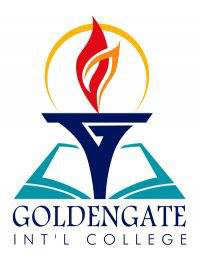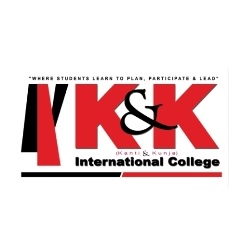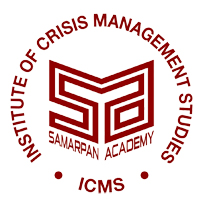Overview
Central Department of Linguistics Tribhuvan University: The Central Department of Linguistics (CDL) is a distinguished department located within the University Campus of Tribhuvan University in Kirtipur, Kathmandu. Established in May 1996, the CDL falls under the Faculty of Humanities and Social Sciences. It is renowned as the sole department in Nepal offering comprehensive courses in M.A. and Ph.D. in Linguistics.
Mission and Objectives:
- Promoting Linguistic Studies: The CDL aims to promote studies in both theoretical and applied linguistics, equipping students with in-depth knowledge in the field and practical applications in the Nepalese context.
- Advanced Degrees: The department offers specialized degrees, namely M.A. and Ph.D., empowering students to pursue advanced research and contribute to the academic discourse in linguistics.
- Expertise and Excellence: Known for its expertise, the CDL provides high-quality teaching and training in various areas of linguistics in Nepal, establishing itself as a leading institution in the country.
- Establishing Linguistics as a Discipline: The CDL has played a pivotal role in establishing linguistics as a recognized discipline in Nepal, fostering academic growth and linguistic resource development.
Research and Collaboration:
- Linguistic Resource Development: Since its inception, the CDL has been actively engaged in developing linguistic resources for the languages spoken in Nepal. This crucial work contributes to the preservation and understanding of Nepal's rich linguistic diversity.
- Collaborative Endeavors: The department collaborates with both government and non-government organizations, engaging in diverse research projects. This collaborative approach enhances the scope and impact of linguistics research in Nepal.
- Language and Linguistics Education: The CDL endeavors to provide comprehensive education and training to students in the areas of language and linguistics, nurturing a new generation of linguistic scholars and professionals.
- Publication Initiatives: In addition to its educational endeavors, the CDL publishes books, journals, research reports, dictionaries, and lexicons dedicated to the languages spoken in Nepal. This contributes to the dissemination of valuable knowledge and further enriches linguistic research in the country.
- Encouraging Contributions: The CDL appreciates and welcomes contributions from institutions and individuals who provide information on their ongoing and completed works in Nepalese languages. Such collaborations enhance the understanding and documentation of these languages.
On behalf of the Central Department of Linguistics, to provide an overview of our department's activities and invite suggestions for the promotion and upliftment of linguistic studies and research in Nepal.
Teaching and Research Synergy:
- Complementary Approach: At the CDL, our teaching methodologies are complemented by extensive linguistic research to ensure a holistic learning experience for our students.
- Diverse Linguistics Courses: We offer a wide range of linguistics courses, including phonetics, phonology, morphology, syntax, semantics, computational linguistics, historical linguistics, and more, providing students with a comprehensive understanding of the field.
Emphasis on Research:
- Language-focused Research: We encourage our students to engage in research related to the languages of Nepal, allowing them to explore various areas such as sociolinguistic studies, language planning and policies, psycholinguistics, and language documentation.
- Field Work Initiatives: Our faculty and students have conducted fieldwork on different languages spoken in Nepal, resulting in valuable research outputs such as glossaries and grammatical descriptions of lesser-studied languages.
Linguistic Diversity and Documentation:
- Linguistic Diversity in Nepal: Nepal is home to over 120 languages, with new languages still being identified. Exploring linguistic studies in Nepal unveils typologically interesting features.
- Undocumented Languages: Many languages spoken in remote areas of Nepal lack proper documentation. Research on these lesser-described languages is crucial to determine the number of languages and their dialects based on linguistic evidence.
- Language Planning and Policies: The complexity of language planning and policies in Nepal necessitates a deep understanding of the sociolinguistic situation of various languages to inform decision-making.
Future Initiatives:
- Addressing Research Gaps: In the coming years, the CDL will take the initiative to address the research gaps by conducting collaborative research, organizing workshops, seminars, and engaging in linguistic research activities.
- Language Policy and Planning: Our focus will be on linguistic research related to language policy and planning, as well as language documentation, which will be pivotal in the years to come.
- Collaboration and Stakeholder Engagement: The CDL is eager to collaborate with interested stakeholders to enhance various forms of linguistic research in Nepal, fostering a collaborative environment for knowledge sharing and advancement.
Leveraging Technology:
- Enhancing Teaching: We recognize the potential of technology in upgrading the teaching of linguistics and research. We will actively explore technological advancements to improve the learning experience for our students.
- Expanding Research Opportunities: Technological tools and resources will be leveraged to facilitate and expand research opportunities, enabling more efficient data collection, analysis, and linguistic studies.
Courses Offered:
The Central Department of Linguistics offers both M.A. and Ph.D. programs in Linguistics. These programs are designed to provide students with advanced knowledge and research skills in various areas of linguistics.
1. M.A. in Linguistics:
The M.A. program in Linguistics aims to provide students with a comprehensive understanding of linguistic theories, methods, and applications. The curriculum covers a wide range of subjects, including phonetics, phonology, morphology, syntax, semantics, sociolinguistics, psycholinguistics, and computational linguistics. Students engage in coursework, research projects, and seminars to develop their analytical and critical thinking abilities in linguistics. The program typically spans over two years and culminates in a thesis or research project.
2. Ph.D. in Linguistics:
The Ph.D. program in Linguistics is designed for students who wish to pursue advanced research in linguistics and make significant contributions to the field. It offers an opportunity for in-depth exploration of specific areas of interest within linguistics. Students work closely with faculty advisors to develop their research proposals and undertake original research. The program combines coursework, comprehensive exams, and the completion of a doctoral dissertation. The duration of the Ph.D. program varies depending on the individual's progress, but it generally takes several years to complete.
Both the M.A. and Ph.D. programs in Linguistics at the Central Department of Linguistics provide a rigorous academic environment and equip students with the necessary theoretical and methodological tools to excel in linguistic research, teaching, and related professions.
The Central Department of Linguistics at Tribhuvan University stands as a prominent institution dedicated to advancing linguistic studies in Nepal. Through its commitment to teaching, research, resource development, and collaboration, the CDL has played a crucial role in establishing linguistics as a discipline and fostering linguistic diversity in the country. With its expertise, high-quality education, and emphasis on practical applications, the department continues to contribute to the growth and recognition of linguistics in the Nepalese context.
Contact Central Department of Linguistics Tribhuvan University's administrative office for detailed information on the course, admissions, location, fees, scholarships, facilities, counseling, or eligibility.
Contact Details:
Central Department of Linguistics at Tribhuvan University
Kirtipur, Kathmandu, Nepal
Phone: 01-4330696, 9841575511, 9851076279, 9841237533
Email: cdltu2012@gmail.com
Website: www.cdltu.edu.np















